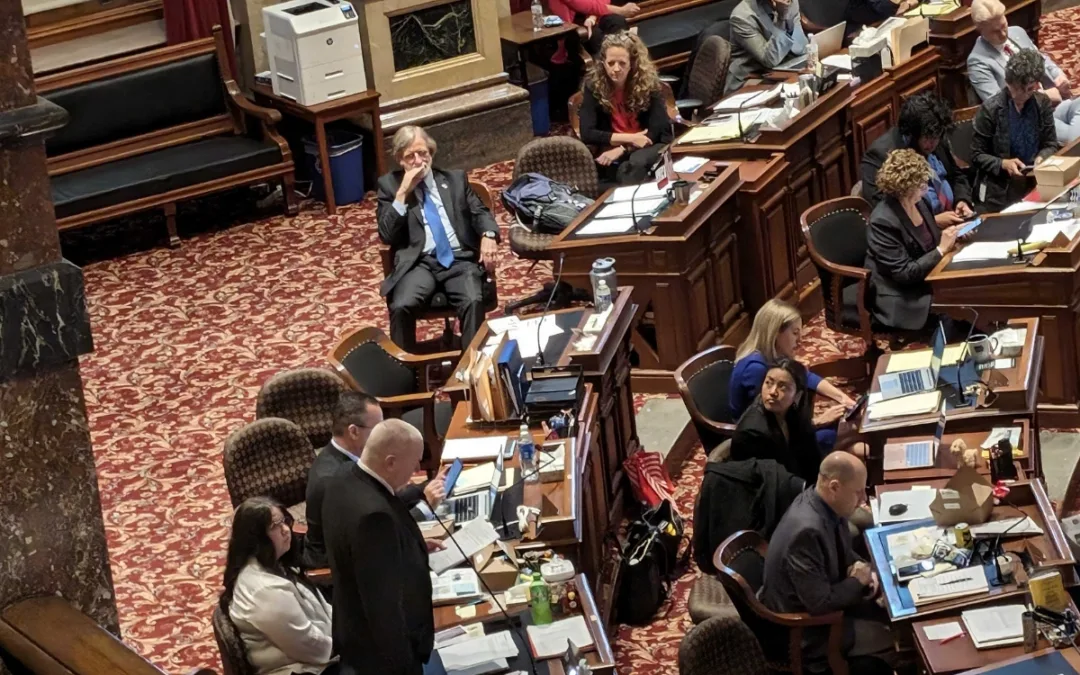
It happens every caucus cycle. A campaign worried about a disappointing showing near the end of the race starts to raise questions about the legitimacy of the caucus process. In 2008 Hillary Clinton backers famously spun bizarre theories about how Barack Obama’s campaign bused in thousands of supporters from Chicago to swamp eastern Iowa precincts. That, of course, was untrue, and would have required the greatest secretive operation in political history, in which none of thousands of caucus interlopers told anyone of their trick. The Clinton folks were rightly pilloried for pushing such nonsense.
This time it appears Bernie Sanders’ campaign may be the one prepping a blame-the-process argument. With the most recent Des Moines Register poll showing Sanders still three points back from Clinton, and the possibility that Sanders’ support is too heavily concentrated in certain precincts (problematic since each has a set number of delegates), there seems to be growing concern among Sanders supporters that he’ll come up short in his upset bid in Iowa. That seems to have brought forward a series of Sanders-pushed stories that suggest a trend in which the campaign may try to undermine the legitimacy of the results.
The most recent attempt came last night when Sanders campaign manager Jeff Weaver spun a sinister-sounding story to Yahoo News about Clinton staffers possibly serving as precinct captains or volunteer leaders, based on a letter a Sanders supporter received. Weaver suggested it could mean that Clinton is “infiltrating the caucuses with out-of-state paid staffers,” and possibly even try to get counted in the caucus.
That argument, however, is utterly ridiculous. Weaver’s so-called proof was a letter telling a voter the precinct leader for their caucus was a paid staffer from Clinton’s campaign. This is actually a regular practice by all campaigns. In certain precincts where they may not have identified a precinct captain, they’ll send a staffer there to organize the room or, at the very least, greet supporters, but not to caucus themselves. And in this situation the Clinton staffer was simply a placeholder when the mailer went out – they later identified a local precinct captain.
Weaver claimed to not know enough about caucus rules to know whether this was allowed or not. Weaver knows the rules. He’s just hoping enough journalists and those outside Iowa don’t so that they’ll think something sounds fishy. It’s especially apparent when Weaver insinuates the mere presence of out-of-state campaign staff at caucus locations could indicate foul play. Out-of-state staffers for Sanders will be at caucus locations as well. To not do so would be campaign malpractice. Being there to observe and assist is different from being there to caucus (plus there’s plenty of press and outside observers at caucus sites, too, so there’s already out-of-staters there).
A separate story pushed by a top Sanders aide last week, however, veered into borderline tin-foil hat conspiracy theory. In an interview with MSNBC, Sanders’ top Iowa adviser Pete D’Alessandro suggested that Microsoft, which developed the caucus reporting software this year, might somehow intentionally fabricate the results to give Clinton a win.
“You’d have to ask yourself why they’d want to give something like that away for free,” D’Alessandro told MSNBC on suspicions they had about Microsoft’s involvement in the caucus process. Other Sanders aides were said to have brought up concerns about Microsoft employees who have donated to Clinton in the past.
That’s quite the accusation. The idea that Microsoft that would risk its reputation in a massive way by fraudulently skewing the most important early state result is pure imagination. It would also be a surprising amount of forethought for Microsoft, considering they started talks for the caucus reporting job about six months before Sanders announced his campaign.
Finally, the Sanders campaign also criticized the Clinton campaign’s focus and strategy for Martin O’Malley supporters. As Buzzfeed reported, Clinton backers will try to determine in certain precincts whether it helps their cause to make an O’Malley group viable in order to deny Sanders an extra delegate. This has been standard procedure for Iowa Caucus campaigns for cycles. Indeed, Sanders’ current Iowa state director, Robert Becker, spoke about the “wheeling and dealing” when he was Bill Richardson’s state director in 2008, as seen on a video published by the Des Moines Register recently.
His Iowa spokesperson called this “sad and telling” that they needed to try these tactics in the first place, and the campaign claimed they didn’t have a similar approach planned. If they really don’t, that would be a surprise, since well-run caucus campaigns typically have a plan to use caucus math to their advantage.
All these stories seem to point to the Sanders campaign potentially laying the groundwork for a way to discredit the impact of a loss on caucus night. The Iowa Caucus was either rigged or the Clinton campaign used underhanded tactics to take delegates from Sanders, it seems they’ll argue.
Anyone who’s worked the caucus before, however, can easily see the holes in the logic of their first attempts to question the process.
by Pat Rynard
Posted 2/1/16
Politics

AEAs cutting workers in wake of Republican legislation
Iowa legislators said a new bill cutting money for agencies that help students with disabilities wouldn't affect services. But area education...

He said what? 10 things to know about RFK Jr.
The Kennedy family has long been considered “Democratic royalty.” But Robert F. Kennedy, Jr.—son of Robert F. Kennedy, who was assassinated while...
Local News

No more Kum & Go? New owner Maverik of Utah retiring famous brand
Will Kum & Go have come and gone by next year? One new report claims that's the plan by the store's new owners. The Iowa-based convenience store...

Here’s a recap of the biggest headlines Iowa celebs made In 2023
For these famous Iowans, 2023 was a year of controversy, career highlights, and full-circle moments. Here’s how 2023 went for the following Iowans:...





